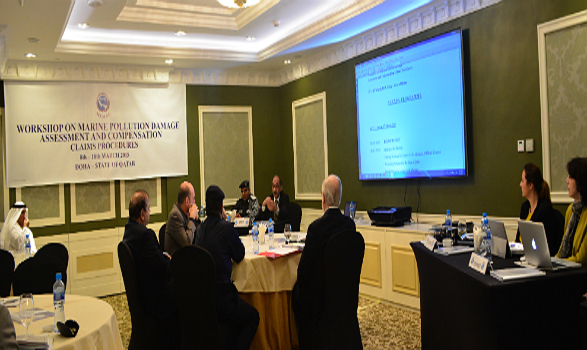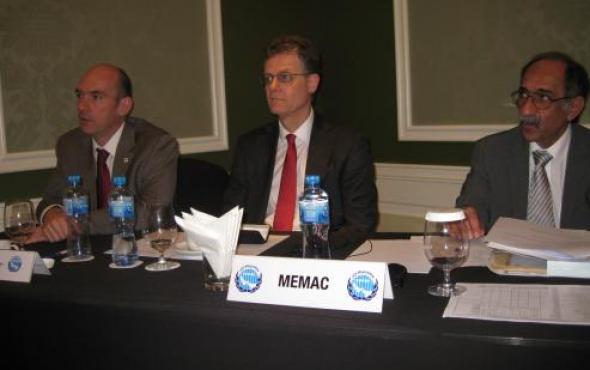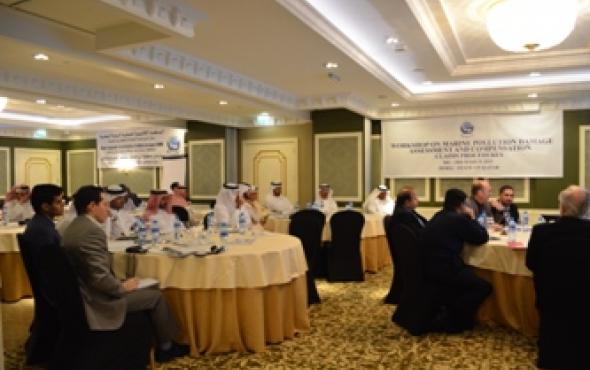Workshop on Marine Pollution Damage Assessment and Compensation Claims Procedures In accordance with Decision 16/iii of the Sixteenth ROPME Council Meeting held in Jeddah, Kingdom of Saudi Arabia on the 28th November of 2013, the Regional Training Workshop on the Damage Assessment, Evidence and Sample Collection and the Claims Procedures was convened in Doha, State of Qatar in the period of 8th – 10th of March 2015.The main objectives of the workshop were to introduce the following:
- Region Damage Assessment related to the Oil and Hazardous Contingency Plan,
- Role of different International Organizations related to the incidents and the compensations such as the ITOPF, IOPC Fund and the P and I Club-GARD,
- Preparations and documentation handling of the claims and evidences required,
- Learning different case studies.
The Workshop was to provide the participants with skills and knowledge necessary for facilitating the processes and it targeted the Operational, Technical and Legal aspects of the assessment, handling the claims and dealing with different compensation parties.The workshop was attended by the representatives of the Kingdom of Bahrain, Islamic Republic of Iran, State of Kuwait, Sultanate of Oman, State of Qatar, Kingdom of Saudi Arabia and United Arab Emirates. The workshop was delivered by experts from the International Oil Pollution Compensation Fund (IOPC Fund), International Tankers Oil Pollution Federation (ITOPF), P and I Insurance-GARD, MEMAC Consultants and MEMAC Professional Staff.The workshop discussed the consequential and pure economical lost as follow:Consequential loss: Loss of earnings suffered by the owners or users of property contaminated as a result of a spill
- Owners of yachts for hire unable to charter their yachts due to oiling of the yacht
- Hotels & restaurants on the beach which have been oiled
- Pure Economical Loss: Loss of earnings sustained by persons whose property has not been polluted
- Hotels or restaurants near the contaminated beach may suffer loss of profit due to reduction in guests.
- She outlined also the admissible criteria in case of tourism are as follow:
- Sufficiently close link of causation between loss or damage and the contamination
- Geographic proximity between claimant’s activity and contamination
- Claimant’s economic dependence on the affected resource
- Alternative sources of supply or business opportunities
- Extent to which the business forming an integral part of the economic activity within the area affected.
The Workshop also provided some good examples and experiences from other regions in terms of incidents and implementation of different IOPC Fund Guidelines and the requirement documents for each individual case.




